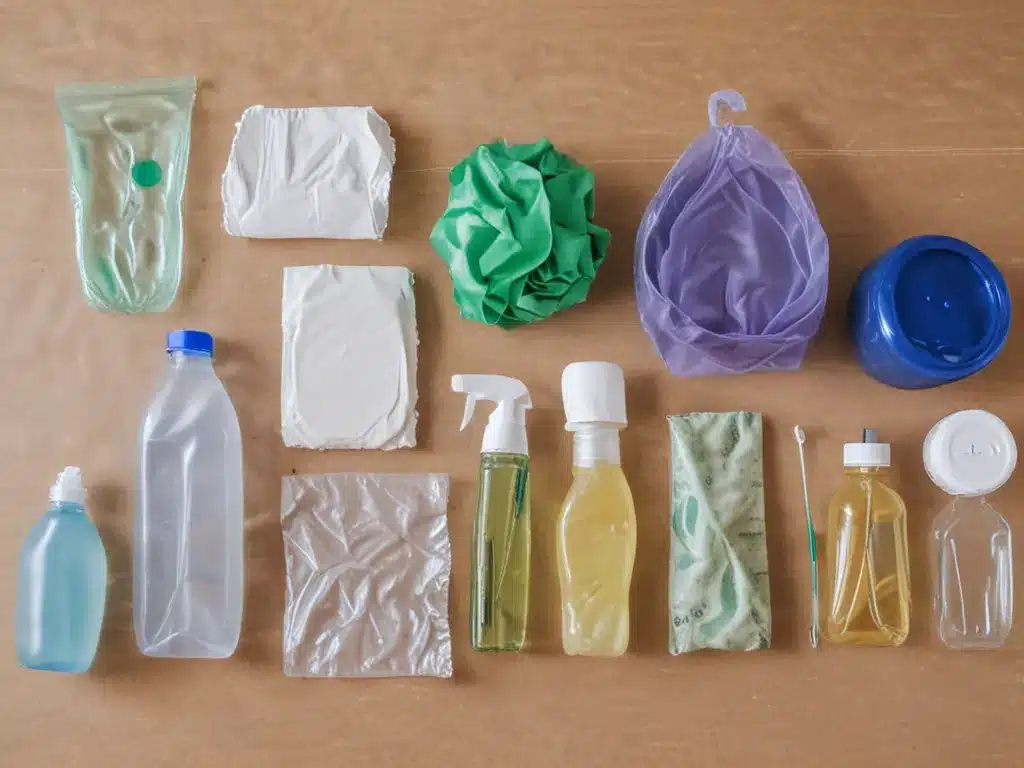Reducing plastic waste is an important step we can all take to help the environment. When it comes to cleaning, there are many simple swaps you can make in your home to cut down on single-use plastics and use more eco-friendly options instead. Here are some ideas to help you live a low-waste lifestyle while keeping your home clean and green.
Replace Disposable Cleaning Wipes with Reusable Cloths
Disposable wipes seem convenient, but all those single-use plastics add up and end up in landfills. A better option is to use reusable cloths made of cotton, microfiber, or other washable fabrics.
-
Microfiber cloths are great for dusting and wiping down surfaces. They grab onto dust and dirt easily. Just rinse or wash after use and reuse.
-
Forheavy duty cleaning, cotton cloths work well. Opt for undyed organic cotton to avoid any harmful chemicals.
-
You can also cut up old towels or t-shirts to make DIY reusable wipes. These are perfect for spills and messes.
It may take an adjustment, but reusable cloths are just as effective as disposable wipes. Keep a stash of them handy for quick cleanups around the house.
Swap Plastic Straws for Reusable Options
Plastic straws are tiny but they generate a huge amount of waste. An eco-friendly alternative is to use reusable straws made of stainless steel, bamboo, glass or silicone. They last for years, so you can just rinse and reuse.
I keep a set of reusable straws in my kitchen drawer and reach for those instead of single-use plastic. They make my daily coffee or smoothie ritual more sustainable.
When dining out, remember to say no to plastic straws. More and more restaurants are shifting to only providing them when requested. Sipping your drink straight from the glass is the easiest low-waste option.
Use Bar Soap Instead of Bottled Hand Soap
Plastic hand soap bottles are ubiquitous in many bathrooms. However, bar soap produces less waste since nothing needs to be thrown away when the bar is gone, only the cardboard packaging.
-
Bar soap also tends to be less harsh on skin compared to liquid hand soap. Opt for simple, fragrance-free bars.
-
Lathering up with bar soap feels nostalgic too! Keep bars handy by each sink in your home.
-
For a DIY touch, try making your own bar soap from all natural ingredients. You can customize scents and textures.
Trading bottled hand soap for bar soap is a simple and affordable plastic-cutting change to make.
Store Essentials in Glass Jars Instead of Plastic Containers
Plastic containers clutter under many sinks and lead to waste when tossed. As an alternative, I recommend storing cleaning supplies in glass jars.
Mason jars or old food jars work perfectly for holding:
- Cleaning brushes and sponges
- Rubber gloves
- Steel wool pads
- Sponges
- Cotton cloths
The glass is recyclable and jars can easily be repurposed when empty. Labeling jars helps quickly identify contents. Having supplies organized in matching glass jars also adds a nice visual touch to storage areas!
Go for Bulk Cleaning Concentrates Rather Than Pre-Mixed Sprays
Many conventional cleaning products come pre-mixed in plastic spray bottles. However, concentrated bulk cleaning formulas create less plastic waste. Look for eco-friendly brands that offer concentrated soaps, detergents, disinfectants and cleaning mixes.
To use:
- Simply add a small amount of concentrate to water in a reusable spray bottle as needed.
- Mixing your own cleaning solutions gives you control over ingredient amounts and toxicity.
- Concentrates also save money since a little bit goes a long way.
This swap makes cleaning routines more sustainable and plastic-free. The key is finding trusted eco-friendly concentrate brands.
Wrap Up
Small changes to cleaning habits can cut back on needless plastic waste. Reusable cloths, straws, bar soaps, glass jars and bulk concentrates are simple eco-swaps that reduce your environmental footprint. A low-waste lifestyle takes mindfulness but quickly becomes second nature. With a few convenient alternatives, you can keep your home fresh and clean while maintaining green values. What other creative ways do you reduce plastic waste in your cleaning routine? Let me know!







